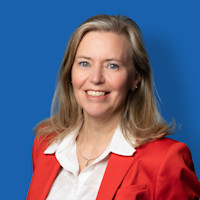Connectis, SIDN and de TU Delft, three large players in the fields of safe log-in software, internet, and scientific research, respectively, will be teaching all primary school children in Rotterdam to program. This provides a response to changes in the labour market, in which the shortage of programmers is growing, while, at the same time, jobs are disappearing due to increasing automisation.
Improved opportunities in the labour market
Children who become familiar with programming software at an early age can easily further develop these skills. It is especially important for girls to get involved early, because they face some prejudice. This project gives children the chance to discover their potential and improve their future chances in the labour market, while at the same time it meets the need for more programmers. Primary education is currently not sufficiently set up to do this and often the means and the expertise are lacking.
Shortage of programmers
"We see a shortage of programmers on the labour market," says Martijn Kaag of Connectis. "We are always looking for good developers, who - just like us - want to add value to society. By giving programming in schools an impulse, we hope to contribute our part to that."
Programming is great fun

"Programming is one of the most creative activities there is," continues Martijn. "Especially for children. It is fascinating and also very suitable for learning through play. If you show children at a young age how much fun programming is, you broaden their horizon and improve their prospects for later. Even if you don’t become a programmer, the structured thinking that programming teaches you is useful in all sorts of jobs."
The classes are taught by students
Connectis, a large supplier of online identification software, pays the students who will be teaching the classes. SIDN, the company that manages the .nl domain names, provides the laptops used in the lessons. The TU Delft coordinates the project and selects the students. The programming lessons start in May 2017 and are for children in the top groups of primary school (groups 6 to 8).



